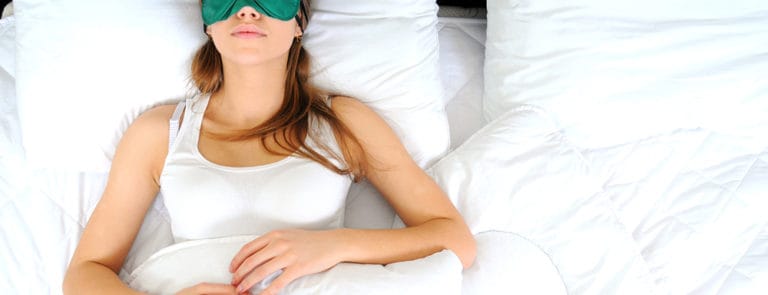It’s not just mood swings and bloating – your hormones can have some strange effects at that time of the month
Around three-quarters of women have PMS symptoms.
1 Premenstrual syndrome is thought to be the result of shifting hormones in the run-up to your period, although women are affected in different ways, and to different degrees.
Common symptoms can include low mood, tearfulness, irritability, breast tenderness, acne flare-ups and fatigue.
2 But there are other, more surprising, symptoms you may not have linked to your hormones that can affect you every month. Have you experienced any of the below?
Handpicked content: How to fight fatigue
1. You feel like kicking bad habits
One study published in the journal Nicotine and Tobacco Research in 2015 found female smokers were better able to quit towards the end of their menstrual cycle.
3 Scientists think the hormones in your body after you’ve ovulated – but before your period starts – help dampen cravings and may reduce your response to temptation.
While the researchers looked at smoking, they think the effects may be similar for other habits. Why not use that time to crush your sugar cravings or cut down on checking social media?
2. That leg wax may hurt more
Women’s pain threshold tends to lower just before their period, according to Brazilian research.
4 Scientists say progesterone has a role in easing pain, but as levels of that hormone drop when you’re premenstrual, you may become more sensitive – making it a bad time to book a bikini wax or eyebrow threading.
3. Your bowels are all over the place
You’re not imagining it; premenstrual syndrome can make you need to go more often! Whether your trips to the loo have increased – or you find you’re straining to go – your hormones are most likely to blame. A 2014 Canadian study found that 73% of women reported digestive symptoms with PMS, including bloating, diarrhoea and constipation.
5
Scientists don’t yet fully understand the link, but drink plenty of fluids if you’re affected, as staying hydrated is key for healthy digestion. And if you’re constipated, try upping the amount of fibre you get from foods such as beans, pulses and oats. Taking friendly bacteria could also help rebalance your gut.
6
Handpicked content: 6 easy ways to beat bloating
4. You want to hide away
Been looking forward to that night out for ages, only to find you now want to snuggle up on the sofa with your cat and a box set? The change in hormone levels before your period can lead to social withdrawal.
7
A study published in BMC Women’s Health in 2014 examined ‘premenstrual coping’ i.e. the things we do to get us through PMS.
8 They found that missing social events was quite common to help us avoid upsetting situations with friends and family at a time when we’re already feeling sensitive. While it’s not worth cancelling that night out, you may want to organise your social calendar so you’re not feeling tearful (or bloated!) before a big do.
5. You can’t sleep
A 2010 clinical review concluded that sleep disturbance is much more common in the second half of your menstrual cycle. This may be due to your menstrual cycle interacting with your circadian rhythm
9 – the ‘body clock’ that governs the sleep-wake cycle – leading to less time asleep, and a lack of REM or ‘deep’ sleep.
Your body temperature rises when you’re premenstrual, too, which can disrupt your sleep as you’re too hot to settle. And the worse your PMS, the more you may be affected – the same review found women with Premenstrual syndrome release smaller amounts of sleep hormone melatonin.
10
To help you get a good night’s sleep, make sure your bedroom is cool and dark, you don’t drink caffeine or alcohol too close to bedtime, and stop using screens such as smartphones at least an hour before bed.
Handpicked content: What causes poor sleep?
Advice is for information only and should not replace medical care. Please check with your GP before trying any remedies.
Sources
1. Mayo Clinic. Premenstrual syndrome. Symptoms and causes. Available from: https://www.mayoclinic.org/diseases-conditions/premenstrual-syndrome/symptoms-causes/syc-20376780/
2. As above
3. Franklin TR, et al. Influence of Menstrual Cycle Phase on Neural and Craving Responses to Appetitive Smoking Cues in Naturally Cycling Females. Available from: https://academic.oup.com/ntr/article-abstract/17/4/390/1166557?redirectedFrom=fulltext/
4. de Brito Barbosa M, et al. Evaluation of sensitivity, motor and pain thresholds across the menstrual cycle through medium-frequency transcutaneous electrical nerve stimulation. Available from: https://www.ncbi.nlm.nih.gov/pmc/articles/PMC3714915/
5. Bernstein MT, et al. Gastrointestinal symptoms before and during menses in healthy women. Available from: https://www.ncbi.nlm.nih.gov/pmc/articles/PMC3901893/
6. NHS Choices. Good foods to help your digestion. Available from: https://www.nhs.uk/live-well/eat-well/good-foods-to-help-your-digestion/
7. As Source 1
8. Read JR, Perz J, Ussher JM. Ways of coping with premenstrual change: development and validation of a premenstrual coping measure. Available from: https://www.ncbi.nlm.nih.gov/pmc/articles/PMC3880968/
9. Shechter A. Sleep, Hormones, and Circadian Rhythms throughout the Menstrual Cycle in Healthy Women and Women with Premenstrual Dysphoric Disorder. Available from: https://www.ncbi.nlm.nih.gov/pmc/articles/PMC2817387/
10. As above




